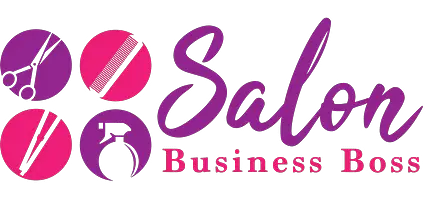The hair industry is a thriving market that offers vast opportunities for entrepreneurs to start their own ventures. If you have a passion for hair care and a vision to create a successful business, then starting a hair business could be a rewarding venture. However, like any other entrepreneurial endeavor, launching and sustaining a hair business requires careful planning, dedication, and a solid understanding of the industry.
Starting a hair business requires careful market research to identify a niche, sourcing high-quality products, building a strong brand, creating an e-commerce website, and delivering exceptional customer service. Stay updated on industry trends and utilize social media for effective marketing.
1. Market Research and Niche Identification

Before diving into the hair business, conducting thorough market research is paramount. This process involves immersing yourself in the hair industry to grasp the current trends, preferences of the target audience, and the competitive landscape. Analyze the market’s demands and explore gaps that offer potential opportunities for your business.
Identifying a profitable niche is a crucial aspect of market research. You can carve a distinct space in the market by specializing in specific hair products, such as organic hair care that appeals to environmentally conscious consumers. Alternatively, consider catering to a particular demographic, like offering specialized hair products for kids. Focusing on a unique selling proposition (USP) is another way to stand out; it could be superior customer service, innovative product features, or sustainable sourcing.
Gathering data from surveys, interviews, and competitor analysis will aid in making informed decisions. By understanding the needs and preferences of your potential customers, you can develop a product range that aligns with their desires, which will give your hair business a competitive edge in the market.
Read more about: Breaking Barriers: Starting a Hair Business from Home
2. Create a Business Plan
A comprehensive business plan is the backbone of your hair business’s success. It acts as a roadmap, guiding you through each stage of development. Within the plan, outline your business objectives, including short-term and long-term goals. Specify your target market, defining your ideal customers and understanding their pain points and preferences.
Conduct a thorough competitive analysis to discern how your hair business can differentiate itself from others. Highlight your USP and develop marketing strategies to effectively promote your products and reach potential customers. Analyze the financial aspects, including projected revenue, expenses, and break-even point, to ensure financial sustainability.
The operational plan should detail the day-to-day activities, inventory management, and supply chain logistics. A well-structured business plan not only serves as a guide for you but also becomes a valuable tool when seeking funding from investors or financial institutions.
3. Sourcing Quality Hair Products
The foundation of a successful hair business rests on sourcing and offering top-notch hair products. It is crucial to establish partnerships with reputable suppliers or manufacturers who can consistently provide high-quality items. Whether it’s hair extensions, wigs, shampoos, conditioners, or other related products, prioritizing quality is non-negotiable.
When sourcing hair products, ensure they meet industry standards and comply with safety regulations. Ethical sourcing is equally important, as consumers increasingly value products with transparent supply chains and eco-friendly practices. Verify the authenticity and origin of the hair used in extensions and wigs, especially if offering human hair products.
To guarantee the safety and effectiveness of the products, consider working with certified suppliers or manufacturers. Perform quality checks on received shipments to maintain consistency and protect your brand reputation. Customer satisfaction depends on the products you offer, so prioritize maintaining a reliable supply chain.
4. Branding and Marketing
In the crowded hair industry, building a strong brand identity is essential for standing out from the competition. Start by developing a compelling brand name that resonates with your target audience and reflects your business values. Craft a unique and visually appealing logo that represents the essence of your hair business. A memorable tagline can reinforce your brand’s message and value proposition.
Packaging and labeling play a vital role in attracting customers and reinforcing your brand’s professionalism. Invest in eye-catching and informative packaging that speaks to the quality of your products.
To promote your hair business effectively, leverage the power of social media platforms, where a significant portion of your target audience resides. Create engaging content that showcases your products, offers tutorials, and addresses common hair care concerns. Collaborate with influencers and beauty bloggers to extend your reach and gain credibility.
Partnerships with salons, beauty stores, and other businesses can amplify your brand exposure. Consider sponsoring events or offering exclusive deals to attract new customers and build brand loyalty. Regularly engage with your audience, respond to inquiries promptly, and encourage customer reviews to build trust and loyalty.
5. E-Commerce Website Development
In today’s digital landscape, a well-designed e-commerce website is the lifeline of a successful hair business. Your website serves as the virtual storefront where potential customers can explore your product offerings and make purchases conveniently. Investing in a professional website design is paramount to create a positive first impression and foster trust with your audience.
Your e-commerce website should have an intuitive layout that makes navigation effortless. Organize your product categories logically and offer search functionality to help customers find what they need quickly. Showcase your hair products with high-quality images and provide detailed descriptions, including product specifications, ingredients (if applicable), and usage instructions.
A seamless and secure checkout process is crucial to convert visitors into customers. Implement reliable and encrypted payment gateways to ensure safe transactions. Offer multiple payment options to accommodate various customer preferences.
To enhance the shopping experience, incorporate customer support features such as a live chat option or a dedicated support email. Clear and accessible contact information adds to your credibility and assures customers that help is readily available if needed.
Remember to optimize your website for mobile devices since a significant portion of online traffic comes from mobile users. A mobile-responsive design ensures a seamless shopping experience for customers browsing on their smartphones and tablets.
6. Compliance and Legal Considerations

Operating your hair business legally is of utmost importance to avoid potential legal issues and maintain consumer trust. Familiarize yourself with the specific regulations and legal requirements that apply to your hair products in your jurisdiction.
Obtain the necessary licenses and permits to operate your hair business legally. This may include business licenses, sales tax permits, and health permits if you offer services like hair styling.
Ensure that your hair products meet safety standards and comply with labeling and packaging regulations. For example, hair care products should include accurate ingredient lists and usage instructions. Additionally, make sure the product labels are clear and in accordance with labeling guidelines.
If your business involves importing or exporting hair products internationally, be aware of customs regulations and trade restrictions to avoid any legal complications.
Regularly review and update your compliance procedures to stay current with any changes in regulations that may affect your hair business.
By prioritizing compliance and adhering to legal considerations, you demonstrate your commitment to ethical business practices, fostering trust with customers and building a solid foundation for long-term success.
Read more about: What is the Best Business Structure for a Hair and Nail Salon?
7. Inventory Management and Storage
Efficient inventory management is critical for the smooth operation of your hair business. Overstocking can tie up capital and lead to product wastage, while running out of popular products can result in missed sales opportunities and dissatisfied customers. Invest in inventory management software to streamline your inventory processes.
A good inventory management system allows you to track stock levels in real-time, ensuring you are always aware of product availability. It can also provide valuable insights into sales patterns and demand trends, enabling you to make data-driven decisions when restocking or ordering new products.
Forecasting demand is another vital aspect of inventory management. By analyzing historical sales data and understanding seasonal fluctuations, you can optimize your inventory levels and prevent stockouts during peak periods.
Proper storage is equally important to maintain the quality and shelf life of your hair products. Store products in a clean, dry, and temperature-controlled environment to prevent damage and spoilage. Consider using storage solutions like shelves, bins, or pallets to keep your inventory organized and easily accessible.
By effectively managing your inventory and storage, you can optimize your stock levels, reduce carrying costs, and ensure that your customers can always find the products they need, resulting in increased customer satisfaction and loyalty.
8. Customer Service and Feedback
Exceptional customer service is a key differentiator for a successful hair business. Train your staff to be knowledgeable, courteous, and helpful when assisting customers. Promptly respond to customer inquiries and provide personalized assistance to address their specific needs and concerns.
Handling complaints professionally is crucial in maintaining a positive brand reputation. Acknowledge and empathize with the customer’s issue and work towards finding a satisfactory resolution. A prompt and considerate response to complaints can turn dissatisfied customers into loyal advocates for your business.
Encouraging customer feedback is an invaluable way to gain insights into their preferences and experiences. Implement customer feedback surveys, online reviews, and social media interactions to gather valuable input. Analyze feedback to identify areas for improvement in your products, services, and overall customer experience.
Act on customer feedback by making necessary improvements and communicating the changes to your customers. This demonstrates your commitment to their satisfaction and fosters a sense of trust and loyalty.
By prioritizing exceptional customer service and actively seeking and acting on customer feedback, you create a customer-centric culture that sets your hair business apart from competitors and builds a loyal customer base that will continue to support and recommend your brand.
9. Online and Offline Sales Channels
To maximize your hair business’s reach and potential customer base, consider diversifying your sales channels both online and offline. In addition to your e-commerce website, explore selling your products on popular online marketplaces such as Amazon, eBay, or Etsy. These platforms attract millions of potential customers and provide an opportunity to tap into existing traffic.
Collaborating with local salons or beauty stores can also expand your offline sales channels. Partnering with established businesses allows you to leverage their customer base and gain exposure in the local community.
Participating in trade shows, pop-up events, and exhibitions is another effective way to showcase your hair products and connect with potential customers in person. These events provide valuable face-to-face interactions, allowing you to build brand awareness and collect instant feedback from attendees.
By adopting a multi-channel sales approach, you can increase brand visibility, diversify revenue streams, and cater to different customer preferences, ultimately boosting sales and business growth.
10. Build a Strong Online Presence

In the digital age, building a strong online presence is essential for the success of your hair business. Social media platforms are powerful tools for marketing and engaging with your target audience. Create accounts on platforms like Instagram, Facebook, YouTube, and Pinterest to showcase your hair products creatively.
Share engaging content such as hair care tips, styling tutorials, before-and-after transformations, and customer testimonials. Visual platforms like Instagram and Pinterest are particularly effective for showcasing your products through appealing images and videos.
Regularly engage with your audience by responding to comments, direct messages, and inquiries promptly. Building a genuine connection with your followers fosters loyalty and encourages word-of-mouth referrals.
Leverage social media advertising to extend your reach beyond your existing followers. Target specific demographics, interests, or locations to reach potential customers who might be interested in your hair products.
Consistency is key in maintaining an active online presence. Schedule posts in advance, be consistent with branding and messaging, and monitor performance metrics to identify what content resonates best with your audience.
Read more about: Hair Haven: A Guide to Launching Online
11. Stay Updated on Industry Trends
The hair industry is dynamic, with trends and consumer preferences constantly evolving. Staying updated on the latest developments is crucial to maintain a competitive edge. Regularly research industry publications, websites, and social media groups to stay informed about emerging trends and innovations.
Participating in hair industry conferences, webinars, and workshops allows you to network with industry experts, gain insights from thought leaders, and stay ahead of the curve. These events offer valuable opportunities for learning, idea exchange, and potential collaborations.
Engaging in ongoing education and training helps you stay updated on the latest hair care techniques, technologies, and product advancements. This knowledge enables you to provide valuable expertise to your customers and ensures you can offer the latest and most relevant products and services.
By staying updated on industry trends, you can anticipate market demands, adapt your product offerings, and position your hair business as a trendsetter, attracting a loyal customer base and reinforcing your brand’s reputation as an industry leader.
Conclusion
Starting a hair business can be a rewarding venture for those passionate about hair care and beauty. By conducting thorough market research, creating a solid business plan, sourcing quality hair products, and implementing effective marketing strategies, you can position your hair business for success in a competitive market. Remember to prioritize customer satisfaction, stay compliant with legal requirements, and adapt to industry trends to ensure long-term growth and profitability. With dedication, creativity, and a commitment to excellence, your hair business can flourish and become a trusted name in the hair care industry.
Frequently Asked Questions

1. How can I manage my inventory efficiently?
Utilize inventory management software to track stock levels, analyze sales patterns, and forecast demand. Invest in proper storage solutions to maintain product quality.
2. What strategies can I use to market my hair business effectively?
Utilize social media, influencer marketing, partnerships with salons, trade shows, and offline events. Engage customers and seek feedback to improve your offerings.
3. Should I consider selling on online marketplaces?
Yes, selling on popular online platforms can expand your reach and attract more customers. However, prioritize building your own brand’s e-commerce website.
To learn more on how to start you own salon checkout my startup documents here.
Please note that the contents of this blog are for informational and entertainment purposes only and should not be construed as legal advice. Any action taken based on the information provided in this blog is solely at your own risk. Additionally, all images used in this blog are generated under the CC0 license of Creative Commons, which means they are free to use for any purpose without attribution.

About the author. Entrepreneur and Salon Business Fan.
Hi! I am Shawn and I am a happy individual who happens to be an entrepreneur. I have owned several types of businesses in my life from a coffee shop to an import and export business to an online review business plus a few more and now I create online salon business resources for those interested in starting new ventures. It’s demanding work but I love it. I do it for those passionate about their business and their goals. That’s why when I meet a salon business owner, I see myself. I know how hard the struggle is to retain clients, find good employees and keep the business growing all while trying to stay competitive.
That’s why I created Salon Business Boss: I want to help salon business owners like you build a thriving business that brings you endless joy and supports your ideal lifestyle.

